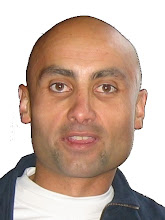The Economist just release a very interesting article about how organizations maybe missing on key opportunities by not being able to assess completely the value of their information - "Data Deluge.” After reading it I think that some would be lead to think that society will drown in the humongous volume of the information we generate. Do you agree with this vision?
I don't. This is why.
I believe that most people are experiencing the information age, with industrial age paradigms. Because of this, things just don't add up for them, and they end up with the impression that we will miss important events because we are unable to process this much information.
I can't but compare this situation, with what happened at the beginning of 20th century, when physicists were trying to explain experiments results based on the Newtonian deterministic models. Things just didn't add up for them either. Eventually, a new school of thought emerged, making it possible for them to explain their results. This new school was coined quantum mechanics.
About 100 years later, I believe that society as a whole is reaching a similar threshold. We need new metaphors to live in a world of uncertainty. We need to evolve how we look at information. That means, for instance, that we need to scrap the old X-Y graphics and replaced them with new ones, that adjust much better to our experiences.
More importantly, in this ever-expanding world of information, we need to evolve towards a state of perpetual learning. However, the state of perpetual learning will only happen if learning becomes more efficient. A lot more efficient and a lot more abundant. The only way we will be able to achieve this, is by allowing teachers to become students and vice versa, in the same way that in quantum mechanics, particles can either be a wave or a particle. We need to make learning an universal concept at any levels, open to all independently of age, location, etc.
This very important duality between teacher-student can only occur if we have a way to assess (qualify and quantify) what each of us knows, how deep it goes and how willing we are to receive or give it. We need to know the force of our knowledge, in the same way that a nuclear scientist knows how much energy can be produced from nuclear fuel.
Finally, the state of perpetual change is only going to emerge, if we make it rewarding. Knowledge needs to be commoditized in the same way, that we today look at electricity. There's a relation between money and energy, and the same needs to happen to knowledge. We need to be able to manage knowledge-chains in the same way we today manage industrial age values-chains. That can only be achieved if we define a quantum of knowledge, that is understood by all and we deploy markets to enable those transactions.
As you know, in the past I focused on applying new science to process management in general. Since the end of 2008, I have narrowed my focus on the mother of all processes; the learning process (epistemic process). My focus has been on creating the paradigms that will allows the migration from the Industrial Age to the Information Age.
Subscribe to:
Post Comments (Atom)




The learning process is definitely the mother (or father) of all processes. Can't wait to see your innovations in that space.
ReplyDeleteEGT — A Bulgarian software program supplier that developed Shining Crown and the Majestic Forest. EGT was founded in 2002 and provides customers with 96% RTP on average. The frequency of gratis spins 메리트카지노 is close to zero.52% probability in each recreation, and the volatility is close to low. Microgaming — The UK playing agency that stands behind Immortal Romance and Mega Moolah.
ReplyDelete